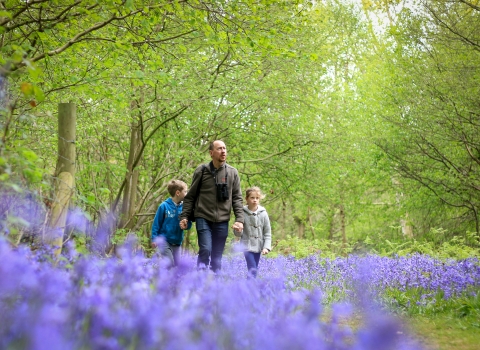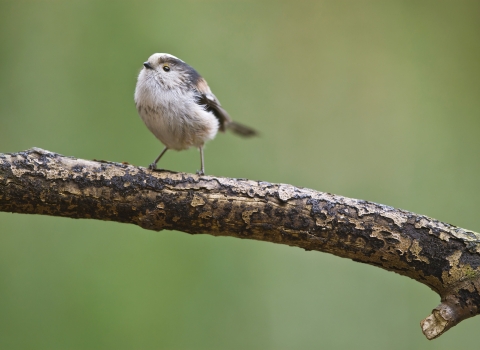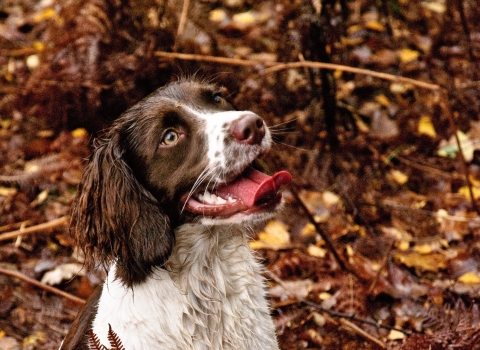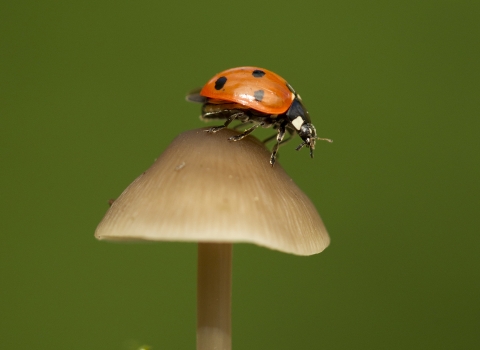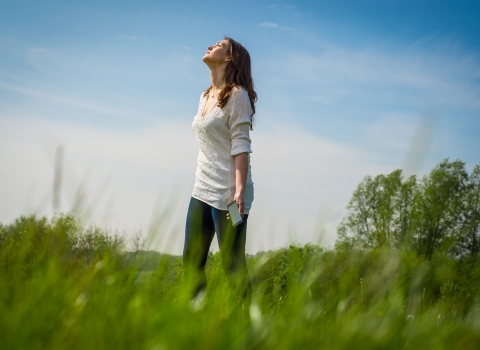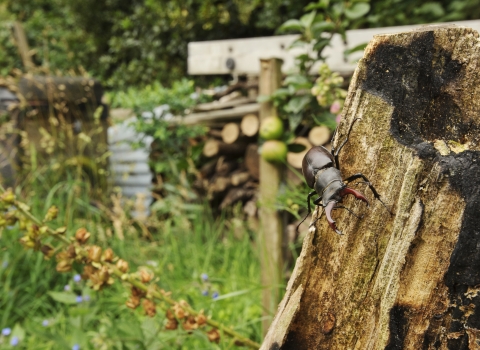A day out with a difference
From seeing colourful wildflowers to spotting magnificent birds of prey, we can help you get closer to wildlife in Lincolnshire. Whether you're exploring secluded woodland paths, or wanting to get muddy with the dogs, we hope that the diversity of our reserves means you can find somewhere that's just right for you.
Visiting nature reserves
Nature reserves are special places that are carefully and sensitively managed for their wildlife. Visitors are welcomed, and we appreciate your help in taking care of these precious wildlife gems.
Take a look at our visitor guidelines below that will help you, and others, can make the most out of your visit, and ensure our reserves can be enjoyed for generations to come.
Countryside Code
When visiting a nature reserve remember to always follow the Countryside Code.
No smoking - the lighting of fires and stoves are also strictly prohibited. Please take your litter home.
No collecting - Please do not remove any plants, fungi or animals. For teaching and serious study, collecting permits may be issued by the Trust's headquarters.
No tents, hides or vehicles - Tents and hides are not allowed. Vehicles may not be taken into reserves except where special parking provision is made.
No BBQs.
No swimming.
No fishing.
Cars parked at nature reserves may be vulnerable to theft and damage. Do not leave valuables in your car and report any persons behaving suspiciously to the police. The Lincolnshire Wildlife Trust accepts no responsibility for any loss, injury or damage, howsoever caused, that may be sustained while visiting any nature reserve.
Group visits
Any organised groups wishing to visit a reserve must fill in a Group Visit form at least one month in advance of their visit.
By booking in advance we can make sure that other groups aren't visiting at the same time and that management work won't disrupt your visit. It is also a valuable record of educational use of the reserves. Copies of the Group Visit forms are available to download on our 'group visits' web page below.
Any school's wishing to visit a nature reserve must get in touch with the relevant reserve staff member. More information can be found on our 'for schools' page below.
Photography
When taking wildlife photographs it is important to remember not to disturb, damage or cause the subject anxiety - remember, the welfare of the subject is more important than the photograph.
For more information, read the Nature Photographers Code of Conduct.
Filming
If you are interested in filming on one of our nature reserves, permission must be granted from our headquarters prior to any filming activities. Please contact us for further information.
Phone: 01507 526667
Email: info@lincstrust.co.uk
Drones
We have over 90 nature reserves across Lincolnshire and each reserve has its own assemblage of wildlife. We work incredibly hard to ensure our reserves are safe spaces for wildlife and we want to keep it that way. Therefore, we do not permit the use of public drones or any other remote control flying devices on our reserves at any time.
However, we recognise that drones can be an incredibly valuable tool when used within nature reserve conservation, such as for habitat mapping or viewing management on a landscape scale. Therefore, on occasion, they may be used on our reserves but they will only be operated by licensed pilots. Before being used, our knowledgeable and experienced reserve teams will take a number of factors into consideration, such as breeding times and they will only be used when absolutely necessary.
Not only can the use of unauthorised drones cause major disruption to wildlife but it can impact on our visitor experiences. We want everyone to be able to visit our reserves and experience how special they are.
To ensure drones are used responsibly and safely they require training and insurance. The UK Dronecode is published by the Civil Aviation Authority to assist drone users in flying safely. These codes evolve regularly so to keep yourself informed about where and when you can fly, check out https://www.caa.co.uk/consumers/remotely-piloted-aircraft/general-guidance/information-for-the-public-about-uas-and-drones/.
If you have any questions about drone usage on our reserves please contact us on Info@lincstrust.co.uk
Livestock
On many reserves grazing with livestock is the most appropriate and successful management technique.
When visiting a reserve you may find that sheep or cattle are present:
- Do not go near, and never touch, handle or feed livestock - if you come across them unexpectedly, move away slowly; if necessary, re-trace your route
- Do not leave any waste food or litter
- Stay on the paths and leave all gates as you find them
- Start your walk with clean vehicles, footwear and clothing
Be tick aware
When out and about visiting our nature reserves or in the wider countryside, it's important to be tick aware. Find out more information and advice on our dedicated webpage here.
Your sightings
Let us know about the wildlife you have spotted on Lincolnshire Wildlife Trust nature reserves and the wider countryside.
Not only do we love to hear your sightings, they will also contribute to the Greater Lincolnshire Nature Partnership database, helping us to make better decisions about conservation management.
Anyone can send in sightings – you don't even have to know what you've seen! Click below to submit your sighting.

